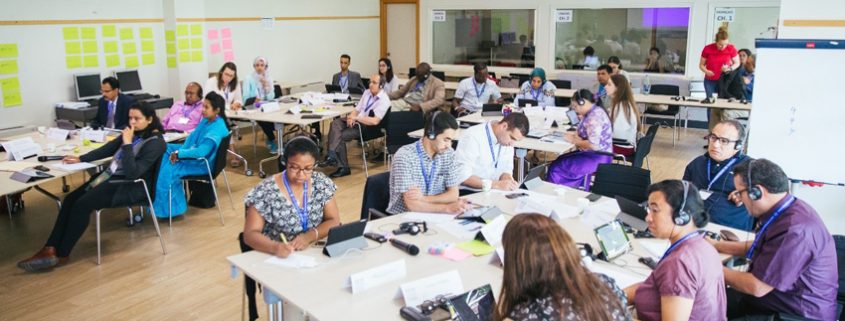Within the context of the SURE project (“Supporting the Social and Professional Reintegration of Return Migrants in North Africa”), the ITCILO Labour Migration Expertise participated in the Joint Labour Migration Programme’s Workshop for the Development of a Training and Capacity Building Plan on Labour Migration Management in Africa, providing input on existing training activities in the area of labour migration.
Ms Miriam Boudraa, Activity Manager in the area of Labour Migration at ITCILO, highlighted elements such as the blended, life-long learning approach adopted by ITCILO, the network of cross-cutting experts involved in training activities on labour migration, and the use of technology for the development of a wide array of training tools.
The Joint Labour Migration Programme is a joint initiative implemented by the African Union Commission (AUC), the International Labour Organization (ILO), the UN Migration Agency (IOM) and the UNECA as a comprehensive labour migration governance programme in Africa.




